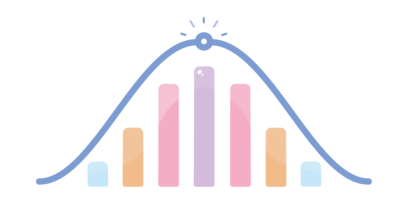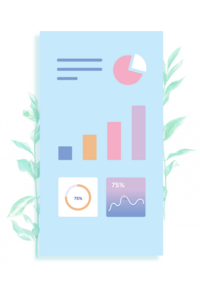- SME
- Research
- Promotional Materials
- Eula Review
- Pysical and Mental Health
- Manage Your Mental Wellbeing
- How to Master Hybrid Working
- Compassion
- Diversity and Inclusion
- Five steps to Wellbeing
- Empowering Yourself
- Positive Mindset
- Understanding Mental Health
- Contact Us
- Privacy Policy
- Terms & Conditions
- Learning & Development
- FAQs
- TWP
- Yearly Wellbeing Schedule
- Success Stories
- Strategies Checklist
- Our Impact
- Mental Health Training
- Mental Wellbeing
- Mental Wellbeing App
- ROI
- Customer Success Guide
- Our Team
- Careers
- Business Insights
- Data Security
- Cookiepolicy
- Sample Contact
- Sample About
- Our Story
- Effective Communication Strategies
Research at Thrive Mental Wellbeing
Active research projects:
efficacy
We want to make sure that we are tackling our users' needs in the most scientifically rigorous and clinically effective way. Our research, in collaboration with the University of Hertfordshire, includes longitudinal as well as randomised control trials in the healthy and clinical population investigating the efficacy of our solution in reducing mental health distress.

engagement
We are continuously improving the way we deliver our content so that our users can make the best out of it. To do so, we are trying to understand who makes the most of digital mental health solutions and why. We also aim to capture patterns of natural engagement with our service as well as understand what factors drive users’ engagement (and how engagement can be maximised).

prevention
Preventing mental health distress from escalating, by identifying potential patterns of behaviours leading to it, is of crucial importance. We are using Artificial Intelligence to find effective ways of predicting changes in users’ behaviour that may signal mental health distress.

AI-Powered journaling tool
In the therapeutic process, homework can be as important as the therapy sessions themselves. We are working on an AI-powered journal that takes as input a piece of text describing a stressful situation and outputs a question helping the user reflect on it and reappraise it in a more helpful way. This is something our users will be able to do by themselves, allowing them to practise what they learned during their therapy sessions.

Support strategies during and beyond COVID-19
Understanding the tools and strategies employees prefer to use when it comes to taking care of their wellbeing is a key area of research, especially since the pandemic has caused employees around the globe to get used to new ways of working. We collaborated with the University of Hertfordshire and Santander to investigate how employers could better direct some of their resources to cope with any new challenges faced with changing working environments. We found employees are much more likely to seek help for their mental health now when compared to before the pandemic. Interestingly, the largest increase in intentions to seek help during the pandemic compared to before was with digital health solutions.

The impact of workplace inclusion on mental health
To feel included in the workplace, an employee must feel that they have the freedom.
to honestly and authentically behave as their true self. An inclusive organisation will consciously acknowledge and respect differences to find individual strengths and build a more cohesive and successful company. We worked in partnership with WiHTL/DiR to increase our understanding of how an inclusive working environment can benefit employees. We found that organisations who foster a more inclusive working environment demonstrate a strong indication that their employees will have positive mental health outcomes. Specifically, employees who feel their opinion is valued when they speak up is the most important predictor of a positive mental health state.

Digital support for people with Eating Disorders
We understand the impact Eating Disorders can have on individuals, their loved ones and in the workplace. We are collaborating with University College London to design and develop eating disorder content within the Thrive Mental Wellbeing app, to help provide easier access to evidence-based treatment.

Digital mental health support in men with Prostate Cancer
Understanding the best support methods for men who seek help for the psychological consequences associated with prostate cancer is of paramount importance. Since the COVID-19 pandemic, many organisations shifted to digital methods for support, such as through email, confidential telephone services, online Live Chat services and support groups, or social media. We are collaborating with Prostate Cancer UK to examine which aspects of digital psychological support men with prostate cancer found helpful during the pandemic, as well as whether there are any additional methods of support they believe could have helped them if they had access to it. This will help provide insights into the best digital psychological support methods in this population to maintain or implement beyond the pandemic, which will be of particular interest to people who do not have in-person support readily available to them.


research collaborations


publications
Ribanszki, R., S Taylor, K., Scheutzow, J., Saez Fonseca, J. A., & Ponzo, S. (2022). Welfare systems and mental health in OECD and EEA countries: a scoping review. Humanities and Social Sciences Communications, 9 (1), 1-10.
https://doi.org/10.1057/s41599-022-01391-2
Ribanszki, R., Saez Fonseca, J. A., Barnby, J. M., Jano, K., Osmani, F., Almasi, S., & Tsakanikos, E. (2021). Preferences in digital smartphone mental health applications among adolescents: a qualitative study. JMIR Formative Research, 5(8), e14004.
https://doi.org/10.1057/s41599-022-01391-2
McCloud, T., Jones, R., Lewis, G., Bell, V., & Tsakanikos, E. (2020). Effectiveness of a mobile app intervention for anxiety and depression symptoms in university students: randomized controlled trial. JMIR mHealth and uHealth, 8 (7), e15418.
Christoforou, M., Sáez Fonseca, J. A., & Tsakanikos, E. (2017). Two Novel Cognitive Behavioral Therapy-Based Mobile Apps for Agoraphobia: Randomized Controlled Trial. Journal of medical Internet research, 19 (11), e398.
https://doi.org/10.2196/jmir.7747
Tucker, I., & Goodings, L. (2015). Managing stress through the Stress Free app: Practices of self-care in digitally mediated spaces. Digital health, 1,
If you want to participate in one of our research studies or if you want to collaborate with us, please fill out the form below or email the research team at research@thrive.uk.com and we will be in touch shortly.




